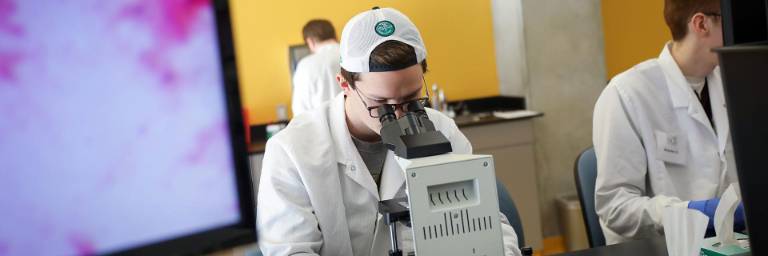Molecular & Integrative Biology Degree
Solve complex problems by studying different levels of biology and how they interact.
To solve modern biological and medical problems, you need a broad skill set. The Molecular & Integrative Biology program will give you the breadth of knowledge, analytical skills, and computational tools needed to approach complex problems in Biology.
- Program type:
- Major
- Format:
- On Campus
- Est. time to complete:
- 4 years
- Credit hours:
- 120
Why earn a molecular biology degree?
Molecular Biology Degree at UND
-
Get hands-on experience. Internship or research experiences are required parts of curriculum.
-
Develop your skills in an area of study with increasing demand for experts in their field.
-
Join a number of organizations on campus to meet with peers and conduct research, discuss industry topics and network.
-
Participate in internships or experiential learning supported by local and national programs such as the McNair and U-RISE programs, the National Science Foundation Research Experience for Undergraduates (NSF-REU) and the National Institutes of Health Summer Undergraduate Biomedical Research Experience (SUBRE)
-
Engage in internships under direct faculty supervision, early in your college career.
-
Work in state-of-the-art facilities including greenhouses, animal rooms for terrestrial and aquatic organisms, tissue culture facilities, a biology core molecular facility and four field stations.
What can I do with a molecular biology degree?
Molecular Biology Degree Courses
Leaders that Do
Students at UND take chances, seek challenges and become leaders in the community.
